Life insurance can feel complicated, but it doesn’t have to be. Knowing the main types of life insurance helps you make the best choice for your family’s future. Every policy offers something unique, whether it’s coverage for a specific period or long-term financial security. Let’s break it down and help you find the right fit based on your goals, budget, and lifestyle.
Life insurance is one of the most important steps you can take to protect your family’s future. It provides financial security when life throws the unexpected your way. If something happens to you, the policy ensures your loved ones aren’t left struggling to cover expenses like mortgages, education costs, or daily living needs.
Did you know that about 52% of Americans have some form of life insurance? But many are still underinsured, meaning their coverage wouldn’t fully support their family’s needs. Understanding the different types of life insurance is key to making sure you get the right protection for your situation.
Life insurance isn’t a one-size-fits-all solution. Policies range from simple term insurance to complex plans that build cash value over time. With the variety of options out there, it’s easier than you think to find coverage that fits your life stage, budget, and financial goals. Stick with us as we walk through the main types of life insurance and how they can help meet your needs.
What Is Life Insurance?
Life insurance is a simple way to make sure your loved ones have financial support after you’re gone. It’s a contract between you and the insurance company. You pay a premium, and they provide a payout, called a death benefit, to your beneficiaries when you pass away.
This safety net can cover a range of expenses, like:
- Mortgage payments or rent.
- College tuition for your kids.
- Everyday bills and debts.
- Funeral costs.
Around 41 million Americans say they need life insurance but don’t have it. Often, they either think it’s too expensive or don’t know enough about the options to decide. However, life insurance is more affordable and customizable than many realize.
By exploring the types of life insurance available, you can pick a plan that fits your family’s needs and gives you peace of mind. After all, life is uncertain, but your loved ones’ financial security doesn’t have to be.
Main Types of Life Insurance Policies
Term Life Insurance
Term life insurance is one of the most straightforward types of life insurance. It provides coverage for a specific period, like 10, 20, or 30 years. If the policyholder passes away during this term, the insurance company pays a death benefit to their beneficiaries. However, if the term ends and the policy isn’t renewed, there’s no payout.
Here are the key features:
- Affordable premiums: Since it only covers a set period, it’s usually cheaper than other policies.
- Fixed term lengths: You can choose coverage that matches your financial needs, like paying off a mortgage or supporting young children until they’re independent.
- No cash value: Because the focus is on temporary coverage, there’s no savings or investment component.
Why Choose Term Life Insurance?
It’s a practical choice if you need protection during certain life stages. For example, young families or new homeowners often use it to ensure financial stability if something unexpected happens.
According to surveys, more than half of all people with life insurance choose term policies. It’s a popular option because it offers solid coverage without straining your budget.
If you’re thinking about starting with life insurance, term policies are a great way to get affordable and reliable protection for your family. Exploring other types of life insurance can also help you decide if another option may work better for your goals.
Whole Life Insurance
Whole life insurance is designed to last a lifetime. Unlike term insurance, it doesn’t expire as long as you keep paying your premiums. Plus, it comes with a savings component called cash value, which grows over time.
Here are the main features of whole life insurance:
- Lifetime coverage: Your loved ones are protected no matter when you pass away, as long as the policy is active.
- Cash value growth: A portion of your premiums goes into an account that builds cash value. Over time, you can borrow against it or even withdraw some of it.
- Fixed premiums: Your payments stay the same for the life of the policy, so there are no surprises.
Why Choose Whole Life Insurance?
This type of life insurance is ideal for people who want long-term financial security and a stable plan. It’s especially helpful if you’re thinking about estate planning or leaving an inheritance.
One interesting fact is that whole life insurance policies account for about 30% of individual life insurance bought in the U.S. It’s a versatile option, but it does cost more than term insurance. Whole life premiums can be 6 to 10 times higher than term premiums for the same amount of coverage.
If stability and lifetime peace of mind are your priorities, whole life insurance might be the answer. It’s one of the most popular types of life insurance for those who prefer a reliable, long-term solution. Keep reading to learn about more flexible options.
Universal Life Insurance
Universal life insurance is a flexible option among the many types of life insurance. It offers lifetime coverage like whole life insurance but with added flexibility. You can adjust your premiums and death benefits as your needs change, making it more adaptable to life’s twists and turns.
Here are the key features of universal life insurance:
- Flexible premiums: You can pay more or less (subject to a minimum) depending on your financial situation.
- Adjustable death benefits: Need more coverage as your family grows? Or less as debts decrease? With universal life insurance, you can often modify the payout.
- Cash value: Like whole life policies, it builds cash value over time. The rate of growth depends on current interest rates, potentially giving you a better return.
Who Should Consider Universal Life Insurance?
This type of insurance is great for people who want lifetime protection but with more customization. For example, if you expect major life changes, like paying off a large debt or planning for retirement, universal life can evolve with your goals.
Data shows that universal life insurance made up about 35% of new individual life insurance premiums in recent years. Its appeal lies in its flexibility and potential for cash value growth.
However, it’s worth noting that universal life insurance can be more complex than other options. You’ll need to monitor it to ensure the cash value covers the cost of insurance, especially later in life. If flexibility and lifetime coverage sound like what you need, this could be the perfect type of life insurance for you.
Variable Life Insurance
Variable life insurance is one of the more investment-focused types of life insurance. It combines the lifelong coverage of whole life insurance with an opportunity to grow your money through investments. The key is that the cash value portion of your policy is tied to various investment funds like stocks and bonds.
Here are the main features of variable life insurance:
- Investment options: Policyholders can allocate the cash value to different investment accounts, offering the potential for higher returns.
- Cash value growth: The cash value’s performance depends on how well the investments do, which means it could grow significantly—or lose value.
- Lifetime coverage: Like whole or universal life insurance, it provides permanent coverage as long as you make the required premium payments.
Who Should Consider Variable Life Insurance?
This type of life insurance is best suited for individuals who are comfortable taking on market risks. It offers the potential for higher cash value growth, which can help with long-term financial goals like retirement or leaving an inheritance. However, it’s important to remember that with higher potential returns comes the risk of loss.
According to industry data, variable life insurance makes up about 5% of all individual life policies in the U.S. Its popularity is smaller compared to other options because of its complexity and risk. However, for those with an appetite for investment opportunities, it can be a powerful tool.
Variable life insurance isn’t for everyone, but if you enjoy the idea of combining life insurance with the potential for investment growth, it’s worth considering among the available types of life insurance.
Final Expense Insurance
Final expense insurance is a type of life insurance designed to cover end-of-life costs. It’s a smaller policy aimed at providing financial relief for things like funeral expenses, medical bills, or other outstanding debts. This type of insurance is simple, affordable, and often easier to qualify for compared to other policies.
Here are the key features of final expense insurance:
- Smaller coverage amounts: Policies typically range from $5,000 to $25,000, enough to cover funeral services and other related costs.
- Affordable premiums: Since the coverage amount is smaller, premiums are generally manageable for most budgets.
- No medical exam required: Many final expense policies ask only a few health questions, making them accessible to older adults or those with health concerns.
Who Should Consider Final Expense Insurance?
This type of insurance is ideal for seniors or individuals who don’t have significant savings set aside for end-of-life expenses. According to the National Funeral Directors Association, the median cost of a funeral with burial in the U.S. is about $7,848. Without a plan in place, these costs can cause stress for family members.
Final expense insurance is one of the most straightforward types of life insurance. It provides peace of mind by ensuring your loved ones won’t have to shoulder financial burdens during an already emotional time. If you’re looking for an easy way to prepare for the inevitable, this might be the best fit for you.
Riders and Additional Options for Customizing Life Insurance Policies
Life insurance isn’t a one-size-fits-all solution. That’s where riders come in. Riders are optional add-ons that you can include in your policy to tailor it to your specific needs. They offer extra benefits or coverage, often for an additional cost. Riders can make your policy as unique as your life situation.
Here are some common life insurance riders to consider:
- Accidental Death Benefit Rider: This rider increases the death benefit if the policyholder passes away due to an accident. It’s a great way to provide extra protection for your family in unforeseen situations.
- Waiver of Premium Rider: If you become disabled and can’t work, this rider lets you skip premium payments while keeping your coverage active.
- Living Benefits Rider: This allows you to access a portion of your death benefit while you’re still alive if you’re diagnosed with a terminal illness. It can help cover medical expenses or improve your quality of life.
- Spouse or Child Rider: These riders add life insurance coverage for your spouse or children to your policy, often at a lower cost than getting separate policies.
Why Should You Consider Riders?
Riders can play a big role in customizing the types of life insurance to fit your lifestyle and concerns. For example, in areas like Fort Myers, where weather risks can impact health and property, a rider like living benefits could provide valuable support.
Life insurance companies often see an uptick in the use of riders for unforeseen circumstances. Around 30% of policyholders use living benefits riders to cover healthcare costs while battling major illnesses.
Riders are an easy way to add more value and flexibility to your policy. They ensure your plan stays aligned with your life goals and unforeseen needs. Always discuss your options with your insurance agent to make the most of your policy.
How to Choose the Right Life Insurance Policy
Assessing Your Needs
Choosing the right life insurance begins with understanding your specific needs. Not everyone requires the same type or amount of coverage. Taking a close look at your life stage, financial obligations, and future goals can help you narrow down the types of life insurance that suit you best.
Here are steps to assess your needs:
- Determine Your Financial Dependents:
Think about who relies on you financially. It could be your spouse, kids, or even aging parents. For example, a family with young children might need a policy that replaces decades of income. - Review Current Expenses and Debts:
Add up your ongoing expenses like mortgage payments, car loans, or credit card debt. Ensure your policy would cover these to avoid leaving your loved ones burdened. According to debt.org, the average American has around $90,000 in debt. Life insurance can pay this off so your family isn’t overwhelmed. - Consider Future Goals:
Think long-term. Do you want to fund your kids’ college tuition? Or leave an inheritance? Policies like whole or universal life insurance can help with these goals. - Account for End-of-Life Costs:
Funeral expenses can cost up to $7,848 on average. A policy like final expense insurance ensures your family won’t struggle to handle these when the time comes. - Understand Your Life Stage:
Your needs will change over time. If you’re starting a family, term insurance may be more practical. Later in life, when debts are paid off, you might consider switching to a policy focused on estate planning.
A simple formula to estimate coverage is to multiply your annual income by 10 to 15. For instance, if you earn $50,000 a year, you may want a policy between $500,000 and $750,000. This gives your family time and resources to adjust financially if you’re no longer around.
Taking stock of these factors ensures you’re picking a plan that’s effective and tailored to your life. The right fit among the many types of life insurance is one that secures the future without stretching your current finances too thin.
Budget and Affordability
Affordable life insurance is a priority for most people. Balancing cost with the right amount of coverage can feel overwhelming, but there are strategies to make it work. Life insurance isn’t as expensive as many believe. A study by LIMRA found that over half of Americans overestimate the cost of life insurance—some by as much as 300%. Knowing what affects your premiums can help you make an informed choice.
Here are tips for managing affordability:
- Start with Term Life Insurance:
For people on a budget, term insurance is a great option. It’s significantly cheaper than permanent types of life insurance. For example, a healthy 30-year-old can get a $500,000, 20-year term policy for around $20-$30 a month. - Choose Coverage Wisely:
You don’t need more insurance than your family’s actual financial needs. Assess your debts, dependents, and future goals to determine a realistic coverage amount. - Lock in Lower Rates Early:
The younger and healthier you are, the lower your premiums. If you wait until later in life, you could pay 2 to 3 times more for the same coverage. - Compare Several Quotes:
Don’t settle for the first quote you receive. Compare options from multiple providers to find the best deal. Online tools and local insurance agents can simplify this process. - Customize Your Plan with Riders Carefully:
Adding riders can raise your premium. While they’re useful, focus on the ones that genuinely meet your needs to avoid excessive costs. - Bundle Policies Where Possible:
Some insurance companies give discounts if you bundle your life insurance with other policies like home or auto insurance.
Understanding the various types of life insurance can help you find the right coverage that doesn’t break the bank. Whether you start small with term insurance or explore permanent options, there’s a policy out there that fits your budget. Adjusting coverage over time ensures both affordability now and protection for the future.
Working With a Local Insurance Agency in Fort Myers
Choosing the right life insurance policy can feel like a big decision. That’s why working with a local insurance agency can make all the difference. Local agents understand your community, your unique needs, and the specific factors that affect residents here in Fort Myers.
Here’s why working with a local agency is a smart move:
- Tailored Guidance on Types of Life Insurance:
A local agent can explain the different types of life insurance in plain terms. They’ll help you figure out which policy matches your budget, goals, and lifestyle. For example, they might recommend term insurance if you’re a young family or whole life coverage if you’re planning long-term. - Insight Into Local Factors:
Fort Myers has a large population of retirees and seasonal residents. A local agent understands this dynamic. They’ll help you choose coverage that fits these unique situations, like final expense insurance for seniors or riders tailored to weather-related risks. - Face-to-Face Support:
Need help navigating policies or understanding the fine print? With a local insurance agency, you can sit down with someone in person. This level of connection can save time and provide peace of mind. - Better Claims Assistance:
Filing a claim can be stressful during tough times. Local agents often work closely with you through the process, ensuring quick resolutions. This personalized support can be invaluable. - Access to Multiple Providers:
Many local agencies partner with a range of insurance companies. This gives you access to multiple quotes and options, so you don’t overpay for your coverage.
Fort Myers residents are part of a growing trend toward choosing tailored insurance solutions. Around 60% of customers say they trust agents over online navigating alone when managing policies. A local agency equips you with expert advice, saving you from feeling overwhelmed while securing the ideal policy for your needs.
By working with someone who knows the ins and outs of Fort Myers, you’ll walk away with confidence knowing you’ve made the right choice among the many types of life insurance available.
Life insurance is an essential step to protect your family’s future. You’ve learned about the different types of life insurance, including term, whole, universal, variable, and final expense insurance. Each one offers unique benefits, whether you need short-term coverage or a plan that grows with you over time. Riders and customization options also make it easy to create a policy tailored to your needs.
Think about your financial goals, budget, and life stage to choose the right policy. For residents of Fort Myers, working with a local insurance agency ensures personalized advice and support. Don’t wait to secure your family’s future. Contact us today for expert guidance or to get a personalized quote.







